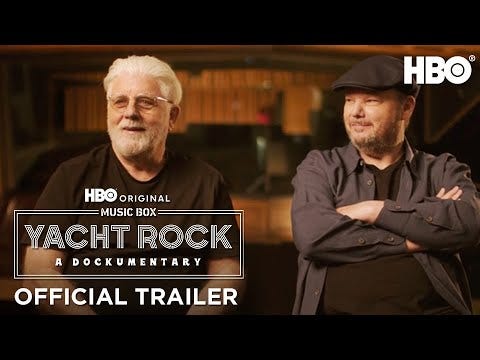Yacht rock! OMG. LMAO. The time I wasted on Twitter arguing about "yacht rock." I don't really wish I had that time back, because it didn't take much to state my opinion and leaving the idjits battling over the chum I had tossed in the waters as bait.
My central argument was that no such thing existed: It was counterfeit currency, a royal scam. Especially when those who argued the legitimacy of yacht rock insisted that Steely Dan was yacht rock.
This is the central controversy in the naming of a genre 25 years after it occurred. Yacht rock was invented as a joke, really, explained in 90 entertaining minutes on the MAX (not Imax) movie, Yacht Rock: A Dockumentary, where it debuted Nov. 29.
It started with a 2005 web series created by J.D. Ryznar, Hunter Stair and Lane Farnham, and featuring "Hollywood" Steve Huey as the "interviewer" of fictionalized versions of musicians in the "yacht rock" mold. These five-minute parodies each focused on the imaginary back stories of hits such as "A Foo…
Keep reading with a 7-day free trial
Subscribe to Critical Conditions by Wayne Robins to keep reading this post and get 7 days of free access to the full post archives.



